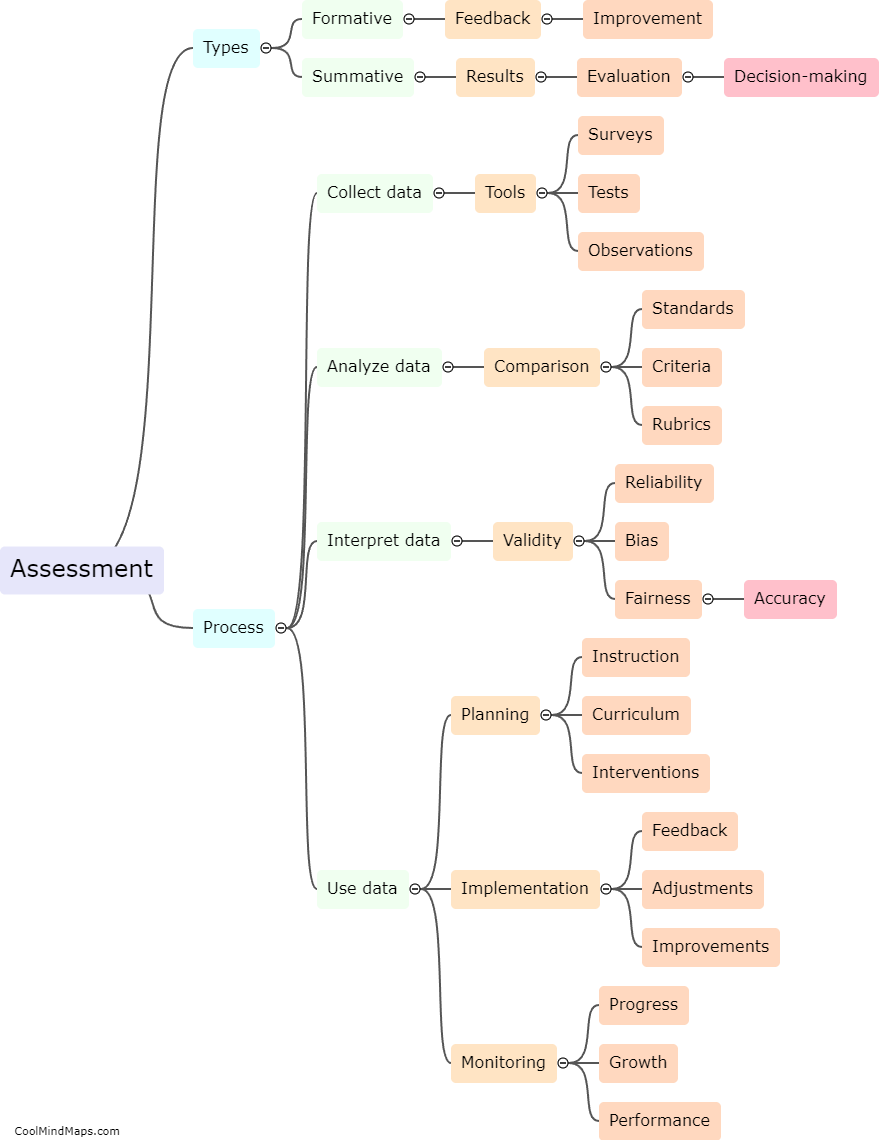What is the Law of Large Numbers?
The Law of Large Numbers is a fundamental principle in statistics and probability theory. It states that as the number of observations or trials increases, the average or expected value of those observations will converge towards the population mean or true probability of the event. In simpler terms, the more data we have, the more accurate our estimates or predictions become. This law is crucial in various fields, such as finance, insurance, and scientific research, as it helps in assessing risk, making informed decisions, and reducing uncertainty.

This mind map was published on 4 August 2023 and has been viewed 138 times.











